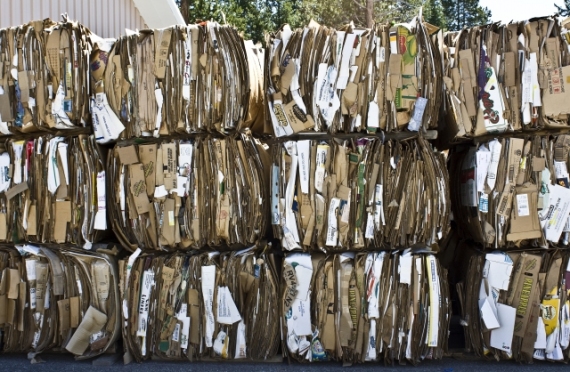Meet the People Who Steal Garbage
There’s an old saying, “one man’s trash is another man’s treasure,” the etymology of which has been lost to time. The meaning is not literal but, typically, a commentary on how there is no judging for taste — what one person may think is worthless may be cherished by another. But in the case of one particular type of refuse, the literal meaning of the phrase rings true — to the point of fueling organized crime in parts of the United States.
That product? Old cardboard boxes. While some people are trying to throw them out, others are stealing them before the waste haulers come by.

Because cardboard boxes have a second life, they have value even after they are emptied of their contents and sent off with the waste hauler. While municipalities and companies alike will pay such service providers to take their garbage and recyclables away, the haulers also make money by selling the bales of cardboard to recyclers. But others are aware of the cardboard’s value — approximately $100 a ton — and grab it before the haulers can. Because the waste management companies have contractually agreed to take the trash (at a price lower than they would if the recyclable cardboard were not present), doing so is often considered theft.
One notable such crime spree involved three New Jersey men who, over the course of about four months, made off with over 900 tons of cardboard, as reported by Metro Philadephia. While most illegal cardboard runners simply steal the boxes laying idle off the side of the road (which is typical in larger cities) or from behind large stores like Wal-Mart or Target, the New Jersey trio were more creative. They created a sham corporation called “Metro Paper, Inc.” and rented trucks. Then, they monitored the pickup schedules at large stores which went through a high amount of boxes. Once they had the schedule down, they made sure they arrived before the legitimate haulers, picking up the boxes and moving on to their next target.
Seems like a waste of time — or, a crime not worth the risk? According to NBC 4 New York, the group sold their treasure trove of used cardboard boxes for just north of $100,000.
Bonus fact: What does society do with all those recycled boxes? In general, they’re turned into more boxes, as noted above. But Israeli inventor Izhar Gafni, a bicycling enthusiast, decided to take his hobby and turn it into a challenge. As reported by Fast Company, Gafni built a fully functional bike out of recycled cardboard boxes. The water-resistant bicycles use only $9 in materials.
Double bonus!: There’s a National Toy Hall of Fame in Rochester, New York. As reported by USA Today, in 2005, three toys were enshrined into the Hall — the Jack-in-the-Box, the board game Candy Land, and the empty cardboard box.
From the Archives: Garbage City: How Cairo, Egypt — absent a significant municipal garbage system — recycles.

Leave a comment